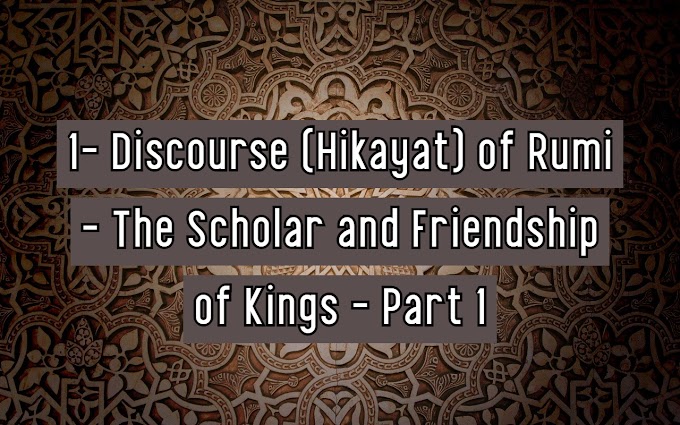Mohammed (Peace Be Upon Him) the last of Prophets, once said, “The worst of scholars are those who visit kings, and the best of kings are those who visit scholars. Wise is the king who stands at the door of the poor, and wretched are the poor who stand at the door of the king.”
Now, taking the outward sense of these words, people think that scholars should never visit princes or they will become the worst of scholars. That is not the true meaning. Rather, the worst of scholars are those who depend upon Kings, and who revolve their life and purpose around the attention and favor of Kings. Such scholars take up learning in hopes that Kings will give them presents, hold them in esteem, and promote them to office map out for them. So, whether they visit a King, or a King visits them, still in every case they’re the visitors, and it is the King who is visited.
However, when scholars do not study to please Kings, but instead pursue learning from first to last for the sake of truth—when their actions and words spring from the truth they have learned and put to use because this is their nature and they cannot live otherwise—just as fish can only thrive in water—such scholars subject themselves to the control and direction of God. They become blessed with the guidance of the prophets. Everyone living in their time is touched by them and derives inspiration from their example, whether they are aware of the fact or not.
Should such scholars visit a King, they are still the ones visited and the King is the visitor, because in every case it is the King who takes from these scholars and receives help from them. Such scholars are independent of the King. They are like the light-giving sun, whose whole function is giving to all, universally, converting stones into rubies and carnelians, changing mountains into mines of copper, gold, silver and iron, making the earth fresh and green, bringing fruit to the trees, and warmth to the breeze. Their trade is giving, they do not receive. The Arabs have expressed this in a proverb: “We have learned in order to give, we have not learned in order to take.” And so in all ways, they are the visited, and the King is the visitor.
The thought comes to me at this point to comment on a verse of the Quran, although it is not related to the present discourse. However, this idea comes to me now, and I want to express it so that it can go on record.
O Prophet (Peace Be Upon Him), say to the prisoners in your hands. ‘If God knows of any good in your hearts, He will give you more than He has taken, And He will forgive you. Surely God is All-forgiving, All-compassionate.’
This verse was revealed when Mohammed (Peace Be Upon Him) had defeated the unbelievers, slaying, plundering and taking prisoners, whom he tied hand and foot. Amongst the prisoners was his uncle, ‘Abbas. The chained people wept and wailed all night in their helpless humiliation. They had given up all hope of their lives, expecting the sword and slaughter. Mohammed (Peace Be Upon Him), seeing this, smiled.
“Look!” the prisoners exclaimed. “He shows the traits of a person after all. This claim that he is superhuman is not true. There he stands looking at us prisoners in these chains, enjoying it. Just like everyone ruled by their passions—when they gain victory over their enemies and see their opponents vanquished to their will, they rejoice and feel happiness.”
“Not so,” answered Mohammed (Peace Be Upon Him), seeing what was in their hearts. “Never would I laugh at the sight of enemies conquered by my hand, or the sight of your suffering. But I do rejoice, in fact, I smile, because with the inner vision I see myself dragging and drawing people by collars and chains, out of the black smoke of Hell into Paradise, while they complain and cry, ‘Why are you pulling us from this pit of self-destruction into that garden of security?’ So, laughter overcomes me.
Part 2 : Here
Follow Facebook Page




0 Comments